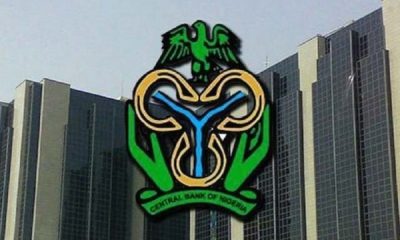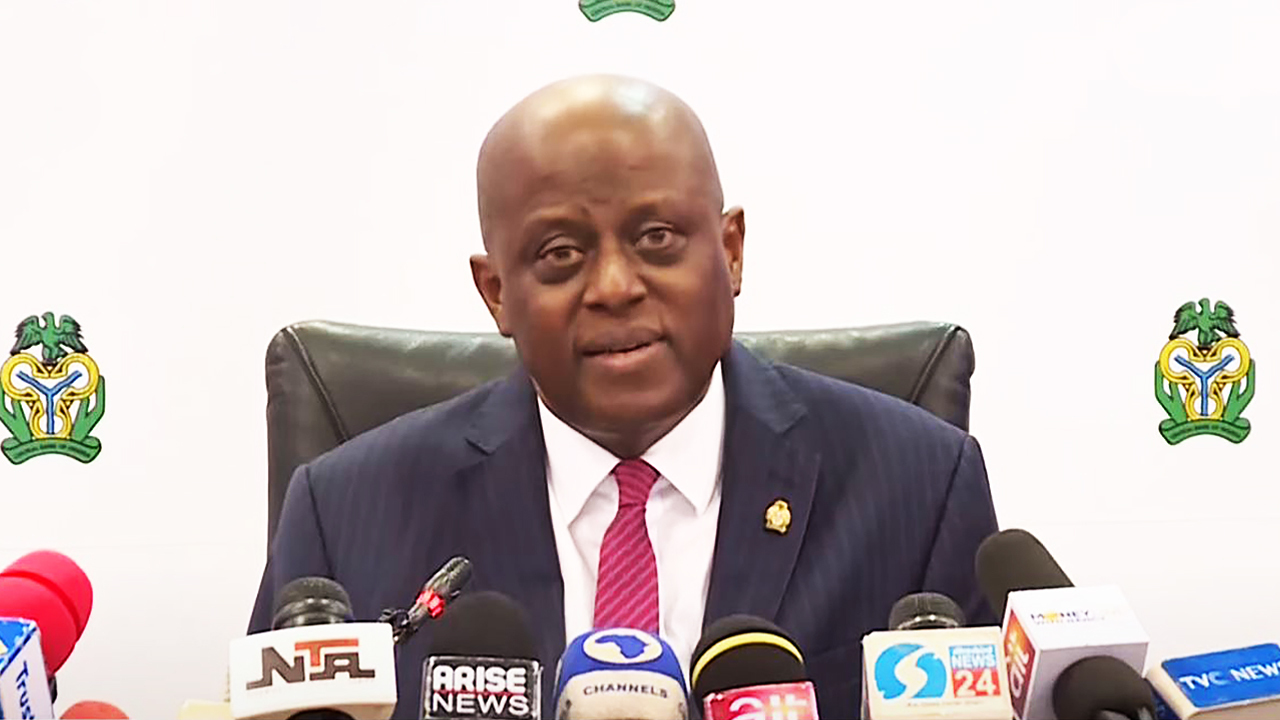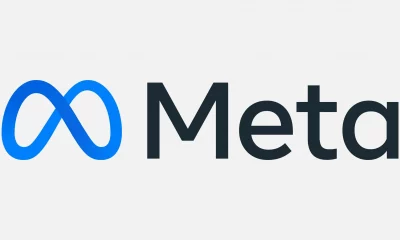General
SERAP, CJID Challenge Imposition of Fines on Media Houses
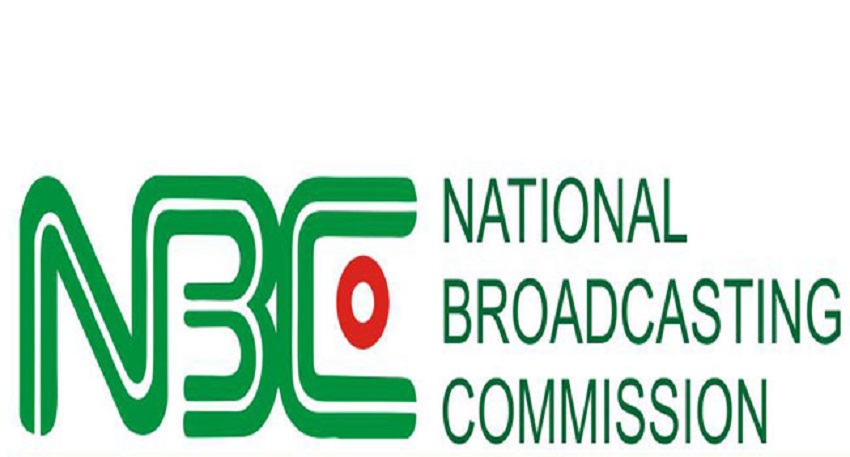
By Adedapo Adesanya
The Socio-Economic Rights and Accountability Project (SERAP) on Sunday said it has filed a lawsuit against President Muhammadu Buhari for imposing fines on media houses for allegedly glorifying terrorism.
SERAP also wants the court to “declare arbitrary and illegal the N5 million imposed on Trust TV, Multichoice Nigeria Limited, NTA-Startimes Limited and TelcCom Satellite Limited, over their documentaries on terrorism in the country.”
The suit, which was co-filed by the Centre for Journalism Innovation and Development (CJID), has the Minister of Information and Culture, Lai Mohammed, and the National Broadcasting Commission (NBC) joined as defendants.
Business Post had reported how NBC imposed the fines on the media houses including Trust TV on the grounds that their documentaries glorified the activities of bandits and undermined national security, an act that contravenes the provisions of the Nigeria Broadcasting Code.
However, the groups in suit number FHC/L/CS/1486/2022 filed last Friday at the Federal High Court, Lagos, SERAP and CJID are seeking: “an order setting aside the arbitrary and illegal fines of N5 million and any other penal sanction unilaterally imposed by the NBC on these media houses simply for carrying out their constitutional duties.”
“The NBC and Mr Lai Mohammed have not shown that the documentaries by the media houses would impose a specific risk of harm to a legitimate State interest that outweighs the public interest in the information provided by the documentaries,” a statement issued by SERAP Deputy Director, Kolawole Oluwadare, partly read.
“The documentaries by these independent media houses pose no risk to any definite interest in national security or public order.”
The plaintiffs stated that “It is inconsistent and incompatible with the Nigerian Constitution 1999 [as amended] to invoke the grounds of ‘glorifying terrorism and banditry’ as justifications for suppressing access to information of legitimate public interest that does not harm national security.”
It argued that the documentaries by the independent media houses are in the public interest, and punishing the media houses simply for raising public awareness about these issues would have a disproportionate and chilling effect on their work, and on the work of other journalists and Nigerians.
“The action by the NBC and Mr Lai Mohammed is arbitrary, illegal, and unconstitutional, as it is contrary to section 39 of the Nigerian Constitution, and international human rights treaties including the African Charter on Human and Peoples’ Rights, which Nigeria has ratified.”
The suit filed on behalf of the plaintiffs by their lawyers Kolawole Oluwadare and Ms Adelanke Aremo read in part: “A fine is a criminal sanction and only the court is empowered by the Constitution to impose it. Fine imposed by regulatory agencies like the NBC without recourse to the courts is unfair, illegal, and unconstitutional.”
“The grounds of ‘glorifying terrorism and banditry’ used as the bases for sanctioning the media houses are entirely contrary to constitutional and international standards on freedom of expression and access to information.”
“Imposing any fine whatsoever without due process of law is arbitrary, as it contravenes the principles of Nemo judex in causa sua which literally means one cannot be a judge in his own cause and audi alteram partem which means no one should be condemned unheard.”
“Article 19 (1) of the International Covenant on Civil and Political Rights establishes the right to freedom of opinion without interference. Article 19(2) establishes Nigeria’s obligations to respect ‘the right to freedom of expression,’ which includes the freedom to seek, receive and impart information, regardless of frontiers.”
“Under article 19(3), restrictions on the right to freedom of expression must be ‘provided by law’, and necessary ‘for respect of the rights or reputations of others’ or ‘for the protection of national security or of public order (ordre public), or of public health and morals’”
“Although article 19(3) recognizes ‘national security’ as a legitimate aim, the Human Rights Council, the body charged with monitoring implementation of the Covenant, has stressed ‘the need to ensure that the invocation of national security is not used unjustifiably or arbitrarily to restrict the right to freedom of opinion and expression.’”
“The grounds for imposing fines on these independent media houses fail to meet the requirements of legality, necessity, and proportionality.”
“The requirement of necessity also implies an assessment of the proportionality of the grounds, with the aim of ensuring that the excuse of ‘glorifying terrorism and banditry’ and ‘national security’ are not used as a pretext to unduly intrude upon the rights to freedom of expression and access to information.”
The plaintiffs are also seeking the following reliefs:
A Declaration that the act of the Defendants imposing a fine of Five Million Naira each on the independent media houses is unlawful, inconsistent with, and amounts to a breach of the principles of legality, necessity, proportionality, and therefore a violation of the rights to freedom of expression, access to information, and media freedom;
A Declaration that the use of the Broadcasting Code by the NBC to impose sanctions on the independent media houses for an alleged infraction without recourse to the court constitutes an infringement on the provisions of sections 6[1] & [6][b] and 36[1] of the Nigerian Constitution 1999 and Articles 1 and 7 of the African Charter on Human and Peoples’ Rights and Article 9 of the International Covenant on Civil and Political Rights to which Nigeria is a state party;
A Declaration that the provisions of the National Broadcasting Commission Act and the Nigeria Broadcasting Code which are arbitrarily being used by the Defendants to sanction, harass, intimidate and restrict the independent media houses are inconsistent and incompatible with sections 36[1], 39, and 22 of the Nigerian Constitution, Article 9 of the African Charter on Human and Peoples’ Rights and Article 19 of the International Covenant on Civil and Political Rights and are null and void to the extent of their inconsistency and incompatibility;
A Declaration that the Defendants lack the legal power and authority to impose penalty unlawfully and unilaterally, including fines, suspension, withdrawal of license, or any form of punishment whatsoever on the independent media houses for promoting access to diverse opinions and information on issues of public importance;
An Order of Court setting aside of the fine of Five Million Naira imposed by the Defendants, through the 3rd Defendant, each on Trust TV, Multichoice Nigeria Limited, TelCom Satellite Limited (TSTV) and NTA-Startimes Limited for televising the documentary by the British Broadcasting Corporation “BBC Africa Eye” titled “Bandits Warlords of Zamfara”;
An Order of Perpetual Injunction restraining the Defendants or any other authority, persons or group of persons from unlawfully shutting down, imposing fine, suspension, withdrawal of license or doing anything whatsoever to harass and intimidate or impose criminal punishment on the independent media houses or any of Nigeria’s journalists and media houses for promoting access to diverse information on issues of public importance;
And any other order or other order(s) that the Court deems fit to make in the circumstances
No date has been fixed for the hearing of the suit.
General
Salary Benchmarking To Ensure Competitive Compensation

Salary benchmarking is the systematic process of comparing an organization’s pay rates, bonus programs, and total rewards against market standards. This article walks through why benchmarking matters, how to prepare and run an analysis, the best data sources and tools, and how to turn findings into defensible pay structures and ongoing processes.
Why Salary Benchmarking Matters For Online Businesses And Agencies
Without benchmarking, organizations risk three costly outcomes: underpaying (leading to high turnover and loss of institutional knowledge), overpaying (inflating fixed costs and reducing agility), or misallocating compensation across roles (creating internal inequities and morale problems).
For agencies that pitch retainer-driven services, predictable labor costs tied to market rates enable healthier margins and clearer pricing decisions. For in-house ecommerce teams, benchmarking supports workforce planning when launching new product lines or scaling paid acquisition efforts.
Finally, benchmarking is not only financial: it signals professionalism to candidates.
Key Data Sources And Tools For Accurate Benchmarks
High-quality benchmarking blends public data, commercial platforms, and human intelligence.
Public Government And Aggregated Salary Data
Bureau of Labor Statistics (BLS) or national equivalents provide reliable occupational wage ranges, useful for baseline comparisons and compliance checks.
Industry Surveys, Salary Platforms, And Niche Reports
Platforms such as Payscale, Glassdoor, LinkedIn Salary, and specialized reports for marketing and tech roles give role- and location-specific distributions.
Recruiter Intelligence And Peer Networks
Recruiters and hiring agencies provide real-time insight into candidate expectations and accepted offers. Professional networks, Slack communities, and agency owner peer groups can also offer current market anecdotes that databases miss.
Internal Payroll Data And Turnover Metrics
Historical payroll, hiring velocity, offer-acceptance rates, and exit interview themes help normalize market data against internal realities. Using multiple inputs helps find a defensible midpoint.
How To Conduct A Benchmark Analysis Step By Step
A repeatable process keeps benchmarking actionable and defensible.
- Gather data from at least three sources: one government/aggregate, one commercial salary platform, and one recruiter/peer input.
- Normalize data for location and experience. Convert salaries to equivalent cost-of-living or remote-adjusted values if the company has distributed teams.
- Adjust for total compensation. Include expected bonus, commissions, equity, and benefits to compare total rewards, not just base pay.
- Build a comparison table with target percentiles (25th, 50th, 75th) for each role and highlight gaps vs. current pay.
- Prioritize changes. Use a matrix that weighs business impact, retention risk, and budget feasibility to recommend immediate, near-term, and deferred adjustments.
This framework produces a clear narrative: where pay is behind, how much closing the gap will cost, and which adjustments will most protect revenue and client delivery.
Translating Benchmark Results Into Pay Structures And Budgets
Benchmark results must become predictable pay structures.
Normalize Data For Location, Experience, And Role Level
Apply consistent location multipliers and level definitions (junior, mid, senior, lead) so internal fairness stands up to scrutiny.
Build Pay Bands, Ranges, And Target Percentiles
Create bands with minimums, midpoints, and maximums tied to the chosen target percentiles. Bands help managers make consistent offer decisions and reduce bias.
Model Total Cost Of Hire And Budget Impact
Factor in employer taxes, benefits, onboarding costs, and ramp time. Present scenarios that show both absolute costs and return-on-investment when a higher-paid senior reduces client churn or improves campaign ROI.
Design Salary Bands, Bonus Structures, And Noncash Benefits
Consider sales- or performance-linked bonuses for account managers and revenue-attributed roles. Align Compensation To Performance, Retention, And Career Paths
Tie movements within bands to objective competency milestones (e.g., “strategic link acquisition that improves DR by X points” or “reduced time-to-rank for client cohort”), creating transparent merit progression that drives retention.
Communicating, Implementing, And Ensuring Pay Equity
Change management is as important as the numbers.
Gain Leadership Buy-In And Set Change Management Steps
Present benchmarking findings with clear ROI scenarios and phased implementation options. Leadership will respond to cost/benefit clarity, show how targeted raises stabilize revenue-generating roles.
Communicate Changes To Employees And Handle Pushback
Be transparent about methodology and timelines. Provide managers with scripts explaining why adjustments are happening and how employees can progress to higher bands.
Document Compliance, Pay Equity, And Recordkeeping Practices
Maintain audit-ready records of data sources, decision rationales, and salary matrices. Regularly run pay-equity checks by gender, race, and tenure to avoid legal and moral risks.
Thoughtful communication reduces rumors and ensures raises are seen as strategic investments, not arbitrary rewards.
Ongoing Monitoring: KPIs, Review Cadence, And Market Adjustments
Benchmarking isn’t a one-off. It requires monitoring and simple KPIs.
Track Competitive Positioning, Turnover, And Time To Fill
KPIs should include average comp vs. market percentile, voluntary turnover by role, offer-acceptance rate, and time-to-fill for critical positions. These metrics signal when the market has shifted.
Schedule Regular Reviews And Trigger-Based Market Rechecks
A typical cadence is an annual formal benchmark with quarterly spot checks for priority roles. Trigger-based rechecks, when turnover spikes, when offer-acceptance drops below a threshold, or when the market is disrupted, keep pay competitive between formal cycles.
With a small set of KPIs and a clear review cadence, agencies and online businesses can avoid reactive panic hires and keep compensation aligned with strategy and market reality.
Conclusion
Salary benchmarking equips online businesses and agencies to hire and retain the right talent without sacrificing profitability. When done well, benchmarking clarifies where to invest, makes offers defensible, and reduces turnover among roles that materially affect client outcomes and rankings.
General
BPP Confirms N1.1trn Savings from Procurement Reforms in 2025

By Adedapo Adesanya
The Bureau of Public Procurement(BPP) said the ongoing procurement reforms saved the federal government over N1.1 trillion between January and December 2025.
The Director-General of the bureau, Mr Adebowale Adedokun, revealed this while defending the agency’s 2026 budget before the Senate Committee on Public Procurement in Abuja on Thursday.
The bureau also reported reduced contract approval timelines, additional cost savings, and tougher sanctions imposed on erring contractors and non-compliant government officials.
Mr Adedokun appealed for increased budgetary allocation in 2026 to enhance service delivery, create jobs, and strengthen institutional capacity for procurement oversight.
He further revealed that the bureau received N4.032 billion in 2025 and sought higher funding to reinforce anti-corruption efforts under the administration of President Bola Tinubu.
Earlier, the Chairman of the Senate Committee, Mr Olajide Ipinsagba, a lawmaker from Ondo North, underscored the bureau’s strategic role in driving socioeconomic development and promoting fiscal discipline.
Mr Ipinsagba assured the agency of legislative support while urging strict accountability and prudent utilisation of public funds allocated for its operations.
BPP reforms were committed to deepening transparency, compliance, and efficiency in Nigeria’s public procurement system. Some of them include adherence to a 21-day timeline, as mandated by the Public Procurement Act 2007. Also, the BPP is required to review cases, issue a written decision within 21 working days of receiving the complaints, and state the corrective actions, reasons for rejection, or remedies granted.
There are also plans to streamline approval processes, standardise documentation, and automate workflows to ensure timely and transparent procurement decisions.
General
FCT Council Elections: Police Impose 12-Hour Curfew
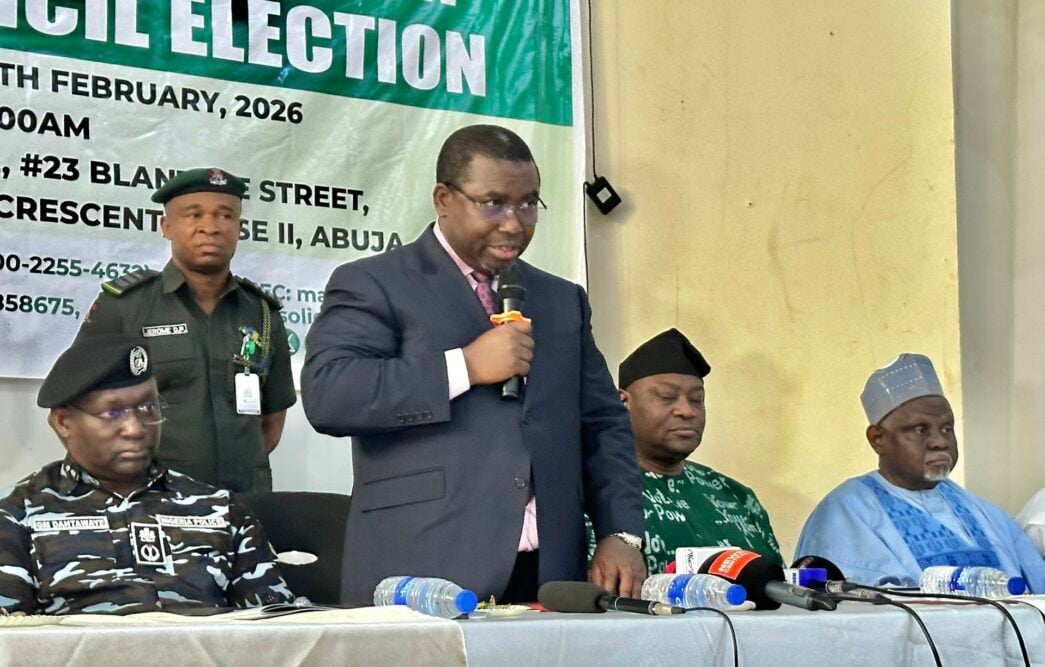
By Adedapo Adesanya
The Federal Capital Territory (FCT) Command of the Nigeria Police Force (NPF) has announced a 12-hour restriction on movement across Abuja and its environs ahead of the council elections scheduled for Saturday, February 21, 2026.
In a statement, the Police Public Relations Officer of the FCT Command, Mrs Josephine Adeh, said the movement will be restricted to ensure security and the smooth conduct of the polls.
“The Commissioner of Police, FCT Command, Miller G. Dantawaye, psc., has announced a restriction of movement across the Federal Capital Territory from 6:00 AM to 6:00 PM on Saturday, 21st February, 2026, in view of the scheduled Area Council Elections,” the statement read.
The police clarified that the restriction will apply to all residents, except essential service providers and duly accredited election officials.
The command also called on residents to remain peaceful and cooperate with security agencies.
“The FCT Police Command urges residents to remain peaceful, law-abiding, and cooperate with security agencies to ensure a safe, free, and credible electoral process,” the statement added.
Meanwhile, the FCT Minister, Mr Nyesom Wike, declared Friday a work-free day ahead of the council elections.
In a broadcast, Mr Wike said the decision, approved by President Bola Tinubu, is to enable residents to travel to their communities to vote.
In contrast to the police announcement, the minister declared a separate restriction of movement across the FCT from 8:00 p.m. on Friday to 6:00 p.m. on Saturday, directing security agencies to ensure compliance.
Mr Wike urged residents to turn out in large numbers and conduct themselves peacefully, expressing optimism that the polls would produce leaders who would promote development and stability in the territory.
In the meantime, the Independent National Electoral Commission (INEC) says preparations for the elections are at an advanced stage, with strong voter participation recorded during the PVC collection exercise.
INEC disclosed that 1,587,025 Permanent Voter Cards (PVCs) have been collected across the FCT, representing a 94.4 per cent collection rate out of the 1,680,315 registered voters.
Security agencies have assured residents of adequate deployment across the territory to maintain order, as authorities emphasise the need for a peaceful, free, and credible electoral process.
-

 Feature/OPED6 years ago
Feature/OPED6 years agoDavos was Different this year
-
Travel/Tourism10 years ago
Lagos Seals Western Lodge Hotel In Ikorodu
-

 Showbiz3 years ago
Showbiz3 years agoEstranged Lover Releases Videos of Empress Njamah Bathing
-

 Banking8 years ago
Banking8 years agoSort Codes of GTBank Branches in Nigeria
-

 Economy3 years ago
Economy3 years agoSubsidy Removal: CNG at N130 Per Litre Cheaper Than Petrol—IPMAN
-

 Banking3 years ago
Banking3 years agoSort Codes of UBA Branches in Nigeria
-

 Banking3 years ago
Banking3 years agoFirst Bank Announces Planned Downtime
-

 Sports3 years ago
Sports3 years agoHighest Paid Nigerian Footballer – How Much Do Nigerian Footballers Earn



